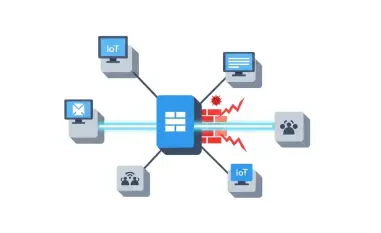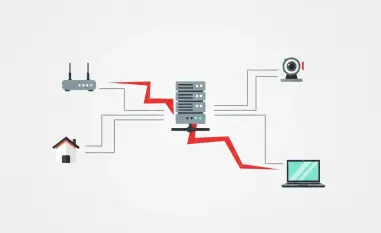Recent developments have brought significant attention to app security measures within government agencies, highlighting the growing focus on safeguarding sensitive information. One notable instance is the decision by the U.S. House of Representatives to ban WhatsApp on government-issued devices. Driven by concerns over data protection and potential security threats, this move underscores a broader trend of heightened regulation and scrutiny over app security in the governmental landscape. With previous app bans like those on TikTok and OpenAI’s ChatGPT, the emphasis on security is clear. This trend analysis explores current patterns in government app security, insights from experts, and the future implications for government operations and technology developers.
Current Trends in Government App Security
Data Protection and Security Gaps
Security concerns around app usage in governmental settings have intensified, with statistics and reports consistently highlighting vulnerabilities that threaten data integrity. Decision-makers are particularly wary of the potential exposure of sensitive governmental information through apps that are not fully transparent about their data protection measures. Reports indicate a significant rise in the number of identified security loopholes, pushing governments to reassess and strengthen their defensive strategies. This increased vigilance signals a commitment to tightening security measures, thereby safeguarding sensitive data from unauthorized access or cyberattacks.
Efforts to fortify security are evident through initiatives that seek to establish stricter data protection frameworks. Trend analyses reveal a growing adoption of sophisticated cybersecurity protocols and technology to shield vital information from threats. Governments are implementing enhanced regulatory policies to proactively approach digital security. This approach is crucial to maintaining confidentiality and integrity in the exchange and storage of sensitive communications, reflecting evolving concerns in data protection.
Real-World Applications and Bans
The ban on WhatsApp by the U.S. House of Representatives demonstrates a pragmatic response to perceived security vulnerabilities in widely used applications. The decision followed other notable bans, including those targeting TikTok and DeepSeek, all reflecting enhanced scrutiny of digital platforms by governmental bodies. These actions illustrate a global trend where governments take decisive steps in identifying and mitigating risks associated with non-compliant applications. Such prohibitive measures are generally grounded in extensive evaluations of app security performance and risk levels.
Governments across diverse jurisdictions are actively seeking alternative apps perceived to meet stringent security standards. Specific case studies highlight governmental partnerships with app developers to advance security protocols and ensure compliance with data protection norms. By enforcing these alternatives, governmental agencies demonstrate their commitment to safeguarding information while adopting platforms that prioritize security and transparency.
Expert Opinions and Insights
Cybersecurity experts and officials provide critical insights into the implications of current app security measures adopted by governments. Their perspectives underscore the complex challenges posed by the evolving technology landscape. Experts often emphasize the necessity for governments to remain at the forefront of technological advancements while balancing security needs with practical usability. As technology becomes more ingrained in governmental operations, the potential exposure to cyber threats could increase unless a vigilant approach is maintained.
Several experts agree that current security measures place a substantial burden on app developers and technology companies, compelling them to rigorously enhance security features. The overarching expectation is that application providers engage intensively with government agencies to align security aspects with evolving standards. This drive toward stringent security demands can precipitate significant shifts in the technology sector, encouraging developers to innovate and maintain competitive advantages.
The Future of Government App Security
The landscape of government app security promises to evolve, with potential advancements geared toward establishing highly robust security protocols. Future developments may include the integration of advanced technologies such as artificial intelligence and blockchain to comprehensively enhance security infrastructures. This forward-looking approach is likely to foster opportunities for more reliable and secure governmental applications.
However, the journey presents notable challenges, including potential financial and technical complexities associated with deploying advanced security mechanisms. The necessity for skilled personnel and the dynamic nature of cyber threats further complicate the task of extending robust security measures across the government sector. Addressing these challenges requires strategic partnerships and continuous research and development to remain adaptive to emerging cyber risks.
For industries reliant on government contracts or data, these developments present both opportunities and challenges. Industries must pioneer innovative solutions that align with governmental security mandates while remaining competitive. The alignment of private sector innovations with governmental security expectations could pave the way for novel collaborations and technological advancements.
Conclusion
Overall, the expanding focus on government app security concentrates on the importance of protecting sensitive information in a rapidly digitizing environment. Emphasizing robust security measures reflects urgent demands seen across global governmental agencies. As security challenges persist, all stakeholders in the tech ecosystem will need to actively engage with evolving standards to ensure the security of digital platforms. By doing so, future governmental operations can effectively balance the adoption of emerging technologies with impenetrable security protocols, preserving data integrity and trust in digital communication functions.













